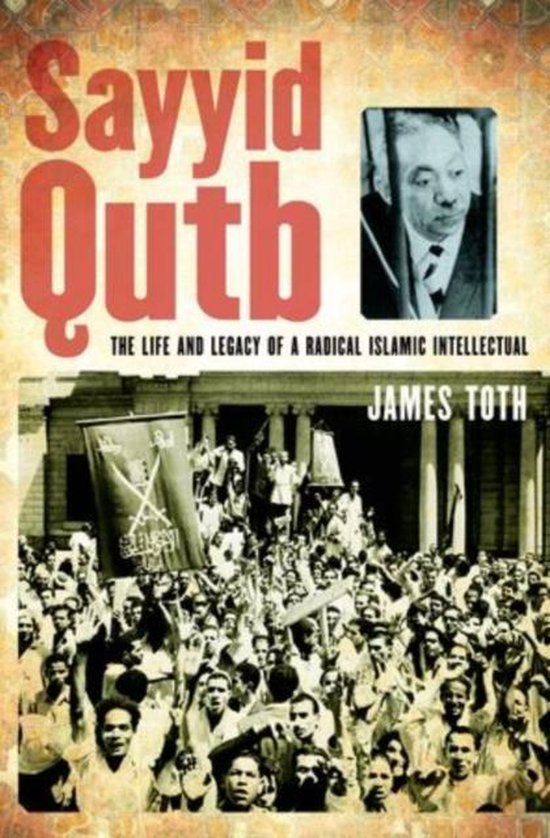
Sayyid Qutb
James Toth traces the life and thought of Sayyid Qutb, the Egyptian thinker and Islamist martyr branded by The New York Times Magazine as "The Philosopher of Islamic Terror." By returning to Qutb's writings, Toth draws a complex portrait of Qutb, one that moves beyond the cartoonish descriptions of him as the evil genius lurking behind today's terrorists.
Sayyid Qutb is considered by many to be the founder of radical Islamism -- the "Philospher of Islamic Terror," in the words of Paul Berman. Many draw a direct line from Qutb through Ayman al-Zawahiri to Osama bin Laden. Qutb first gained notice as a novelist, literary critic, and poet but then began writing religious and political criticism aimed at the Egyptian government and Muslims he deemed insufficiently pious. Under pressure from the authorities, Qutb left Egypt in 1948 for a two-year visit to the United States, during which he grew even more radical. He returned to Egypt and joined the Muslim Brotherhood, eventually taking charge of its propaganda operation. After members of the Brotherhood attempted to assassinate Egyptian President Gamal Abdel Nasser, the group was outlawed and Qutb was thrown in jail. He was executed in 1966 -- becoming, in effect, the first martyr to the Islamist cause. In this book, James Toth traces the life and thought of Qutb, giving attention not only to his well-known Signposts on the Road, but also to his less-studied works like Social Justice in Islam and his 30-volume Quranic commentary. By returning to these sources, Toth draws a complex portrait of Qutb: one that moves beyond the cartoonish depictions of him as the evil genius lurking behind today's terrorists.
Sayyid Qutb is considered by many to be the founder of radical Islamism -- the "Philospher of Islamic Terror," in the words of Paul Berman. Many draw a direct line from Qutb through Ayman al-Zawahiri to Osama bin Laden. Qutb first gained notice as a novelist, literary critic, and poet but then began writing religious and political criticism aimed at the Egyptian government and Muslims he deemed insufficiently pious. Under pressure from the authorities, Qutb left Egypt in 1948 for a two-year visit to the United States, during which he grew even more radical. He returned to Egypt and joined the Muslim Brotherhood, eventually taking charge of its propaganda operation. After members of the Brotherhood attempted to assassinate Egyptian President Gamal Abdel Nasser, the group was outlawed and Qutb was thrown in jail. He was executed in 1966 -- becoming, in effect, the first martyr to the Islamist cause. In this book, James Toth traces the life and thought of Qutb, giving attention not only to his well-known Signposts on the Road, but also to his less-studied works like Social Justice in Islam and his 30-volume Quranic commentary. By returning to these sources, Toth draws a complex portrait of Qutb: one that moves beyond the cartoonish depictions of him as the evil genius lurking behind today's terrorists.
| Auteur | | James Toth |
| Taal | | Engels |
| Type | | Hardcover |
| Categorie | | Mens & Maatschappij |